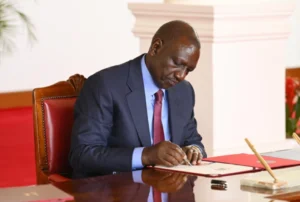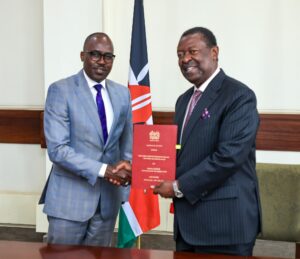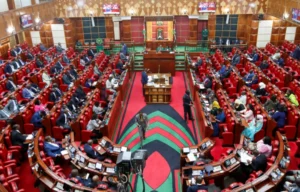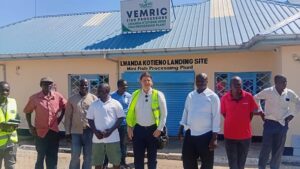KWS Launches Public Participation on Proposed Park Entry Fee Revisions
KWS Director General Erustus Kanga emphasized that the initiative reflects the government’s dedication to participatory governance.
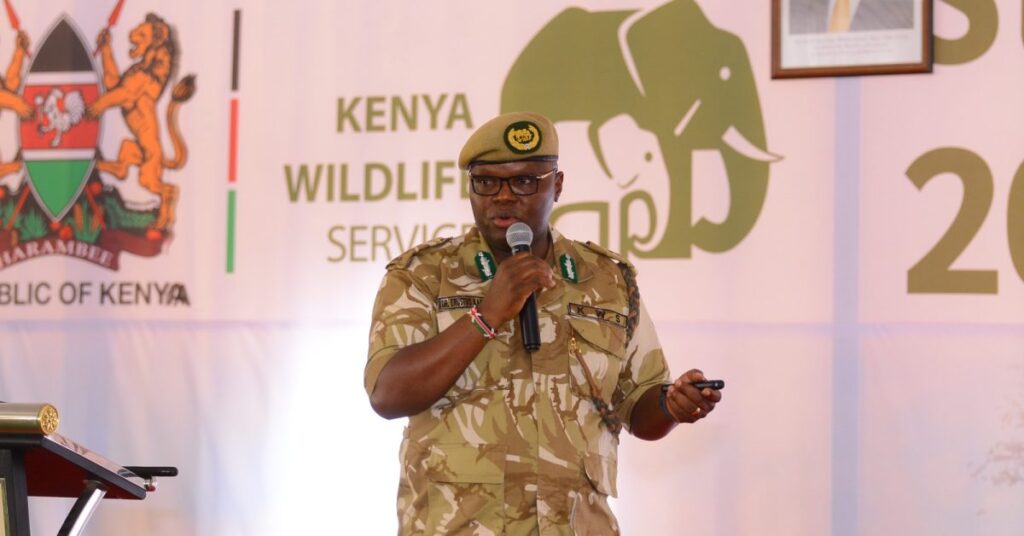
Photo/Courtesy.
By Juliet Jerotich
The Kenya Wildlife Service (KWS), operating under the Ministry of Tourism and Wildlife, has initiated a countrywide public engagement exercise to collect feedback on proposed changes to park entry and conservation charges.
The consultative process will take place from July 29 to August 8, 2025, through 20 in-person sessions scheduled in key counties. This marks the first comprehensive review of conservation fees since 2007 and is expected to prompt a national conversation.
The forums will kick off on July 29, 2025, in Homa Bay, Hola, and Marsabit, followed by Kisumu, Meru, and Lamu on July 30. Kitale, Chogoria, and Watamu will host sessions on July 31; Eldoret, Nanyuki, and Mombasa on August 1; and Nakuru, Embu, and Ukunda on August 4. Events will also take place in Machakos, Nyeri, and Voi on August 5, with Wote holding its session on August 6, and the final event in Nairobi scheduled for August 8, 2025.
As outlined in a notice dated July 17, 2025, KWS intends to use the forums to advance a new conservation financing framework through the draft Wildlife Conservation and Management (Access and Conservation) (Fees) Regulations, 2025, along with a related Regulatory Impact Statement.
KWS Director General Erustus Kanga emphasized that the initiative reflects the government’s dedication to participatory governance.
“We’re especially interested in hearing from local communities near wildlife zones, tour operators, conservation experts, and the wider public. Everyone’s input is vital in shaping the future of our national parks,” he said.
Tourism plays a central role in sustaining Kenya’s protected areas, currently accounting for nearly 90% of KWS’s internally generated revenue. Yet, the current funding model faces mounting challenges from inflation, climate-related impacts, and escalating human-wildlife conflicts.
Key reasons behind the fee review include:
• Personnel costs consume 72% of KWS’s annual budget, restricting investments in infrastructure, security, and habitat rehabilitation.
• Despite rising operational demands, the last fee adjustment was in 2007.
• Only 10% of the total budget goes toward development initiatives like ranger accommodation, vehicle procurement, fencing, and monitoring systems.
• The top five parks—Amboseli, Lake Nakuru, Nairobi, Tsavo East, and Tsavo West—generate 73% of all revenue, supporting over 150 field stations and conflict response teams across the country.
“This is more than just a pricing update—we’re overhauling the system to safeguard our wildlife legacy for future generations,” Kanga noted.
Stakeholders can also participate online at www.kws.go.ke and www.tourism.go.ke, or access hard copies at all KWS-run parks, stations, and sanctuaries free of charge.
Written feedback may be submitted via email to rates@kws.go.ke or mailed to the designated postal address. The submission deadline is August 5, 2025.
The proposed updates aim to secure the long-term financial stability of conservation programs, enhance park infrastructure and visitor safety, improve responses to human-wildlife conflicts, and expand community benefit-sharing schemes, particularly for residents near protected areas.
After the public participation period concludes, all input will be reviewed, compiled into a final report, and incorporated into a revised draft. The final version of the regulations will then be forwarded to Parliament for approval.

